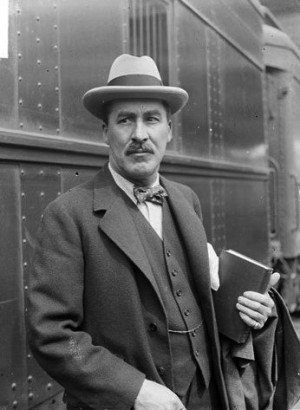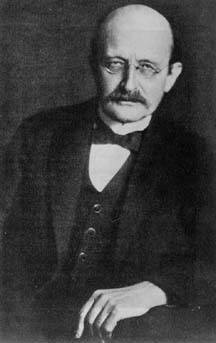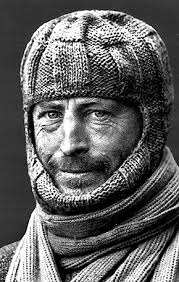Last week, I released a new book entitled Pantheon: Adventures In History, Biography, And The Mind. Here I hope to explain what the book is about, and what things readers can expect to gain from it.
Broadly speaking, this collection of essays concerns moral philosophy. Our goal is to answer these questions: (1) What traits of character promote right conduct, action, and thinking? (2) What systems of thought enable us to achieve our full potential? We use examples from history and biography to illuminate our answers.
Entertainment and instruction go hand-in-hand. In Pantheon, the reader is thrown into the thick of the action right from the beginning. We are not narrowly confined to time and place: I leap across the centuries, and across man’s varied intellectual traditions, to find the best answers to the important questions affecting us.
The book begins with this quote by the Italian humanist Bartolomeo Fonzio from 1511, which sets the tone for the whole:
So advance, fight unflinchingly with steel, and bring to bear standard against standard, weapon against weapon, and chest against chest. And I, the spectator of your fortitude…will be there, and will honor each of you according to his merits.
We begin with a series of “extracts,” then follow with a historical fiction prologue. The tale is one of perseverance and triumph. We then launch into the essays proper. A final “afterword” aims to tie together the varied strands of meaning explored in the text. The book is about 275 pages in its printed version.
The extended prologue plunges us into the incredible story of the hunt for the lost tomb of Tutankhamen:
…The morning light began to beat heavier on the sepia-toned walls of the valley. It was strange, he thought, how a location can impart such a spirit of place. Despite all the bustle of activity that went on here, one had the feeling of an oppressive mortality that permeated every stone of the valley. It was as if the place had served host for so many tombs, for so many thousands of years, that it was geologically incapable of performing any other purpose. No matter how many living souls paraded through here, the place still felt like a mausoleum. I’ve been here too long, he whispered to himself. All of these kings in this quiet, dusty valley once believed themselves to be immune from the grip of mortality and the advances of time’s march. And yet look at them now…
I have always believed that the best way to make a point, and to entertain at the same time, is through the use of historical or biographical example. By keeping company with great men, we cannot help but become greater.
In nearly every case, I have made a point of turning to the original sources, in their original languages, to extract the best and most timely lessons. The result is something that can generate new lessons and new discussion, even after repeated readings.
So in one essay we find ourselves in Egypt’s Valley of the Kings on the eve of the greatest archaeological discovery in history; in another, we stumble across the frozen polar wastes with Douglas Mawson’s doomed expedition; in another, we explore the foundation of conflict and how to manage it; in another, we joust with the ghost of Christopher Hitchens in an extended dialogue; and in yet another we share the quiet study of physicist Max Planck as he rewrites the rules of modern physics.
Man is our subject, and his perfectibility is our goal.
The essays in Pantheon come from different sources. Some of them are enlarged, reworked, and expanded pieces that originally appeared in Return of Kings. Others appear here for the first time. The essays may be grouped into the following categories:
1. Historical anecdote. We discuss a specific historical incident to find out what life’s lesson may be found. (e.g., “Churchill’s Command Decision”).
2. Biographical summary. We highlight the life or career of a famous man to discern what traits of character made him great, or what personal foibles caused his undoing. (e.g., “The Limits Of Power,” “The Consolation Of The Natural World”).
3. Philosophical essay. Some important topic in the world of thought is explored, and its applicability to modern life is discussed (e.g., “The Fortress Of The Mind,” “On Detractors,” “On Conflict,” “On Love And Fate”). In one essay (“The Ghost of Christopher Hitchens”), this comes in the form of a philosophical dialogue.
For example, in one essay, “On Detractors,” we note:
Reading some masterpiece of invective against someone else may bring amusement, but there is something not quite great about it. No one ever called the insults in great speeches great. They may be amusing, but they are not the stuff of greatness. Insults always carry some sort of embedded taint. Of course, this is not to say that one should abandon the obligation of self-defense. If one’s vital position in work or life is threatened, then he must respond to those threats. The art of sound judgment lies in this, then: distinguishing the real threat from the buzzing of annoying flies. Not responding to the true obloquy is a moral failing just as egregious as responding to the inconsequential one.
In another one, we make this observation:
I like most the analogy of the public market or the “fair.” Life, says Epictetus, can be likened to a large trade fair. Some go to the fair to sell their goods and wares, such as cattle, oil, cloth, or food. Others go as spectators. This game of life is similar. Some people, who are like cattle, are interested in nothing beyond their food and bedding. Others are content to observe passively, and are interested only in being amused by the spectacle of the “fair” of life. A small minority seek to ask what is behind the workings of the fair. Who has set it up? Who has constructed it, and what sustains it? These few are focused only on studying the intricate workings of the fair of life before they depart it forever. This small minority, says Epictetus, can expect to be laughed at by the fair’s spectators and the cattle. Spectators want only amusement, and cattle want only fodder. The true seekers want something more, and need something more. It cannot be any other way. We must persist in our questions, and press forward in our studies of this Great Fair of life, and follow the pathways that our answers illuminate.
Finally, there is one section of the book that does not fall into any of these categories, but forms a mini-book within itself. This section is a detailed summary and exegesis of Plotinus’s entire Enneads (all fifty-four treatises). This is the seminal text of Neoplatonist philosophy, and it is important for me to present it to an audience that may not be familiar with it. I provide a logical, step-by-step method of mastering this difficult and yet important intellectual tradition.
I strongly believe that the inward journey—the mystical quest for the union with the Divine—deserves some discussion. All men have this hidden potential for great things. And by tapping into our latent powers, we can literally move mountains.
Neoplatonism is a mystical philosophy that has had tremendous influence in the Western philosophical and religious tradition. In many ways, it can be seen as a “religion” without the cumbersome theological baggage that has soured many idealistic young men on speculative thought.
I hope to remedy this, or at least expose readers to a side of the world of thought that they may never have considered before. This subject has never been presented before in this way, and I expect readers will find the experience challenging and rewarding.
We all wish to become better men. We all wish to fortify ourselves against the difficulties of life. I hope I have helped in this effort. So let us together take these steps forward, linked arm in arm across the centuries with these great figures, imbued with that adventurous and inquisitive spirit that Nature in its wisdom has granted us.
I have forged the sword. It is now for you to grasp the pommel.
Read More: Revolt: Genesis Of The Tunisian Revolution



“I’m sick of being a mothers basement dwelling social justice warrior. Maybe this book will help me finally become a real man!”
The “OBEY” hat is a nice touch.
★★★★ 86$ PER HOUℛ@ai15:
Going Here you
Can Find Out,
►►►►► https://DailyWorkOnline.com/gets/position…
✪✪✪✪✪✪✪✪✪✪✪✪✪✪✪✪✪✪✪✪✪✪✪✪✪✪✪✪✪✪
cool name
That’s a fast pace, I still haven’t gotten to Thirty Seven!
Your last paragraph reminds me of a concept that Louis XIV called “true glory.” I’m writing a long post for my own blog about what I think that is and how to get it, but no doubt entire volumes can be written on that “union with the divine.”
Are you including thoughts from Voltaire on this in your blog? I think it was him who called the age of Louis XIV the greatest age of glory ever. 🙂
No, this was something Louis wrote about in his memoirs. The post should be up in a few days.
Ok cool. Hopefully I will catch it. 🙂
added to my wishlist
Quintus, in your article on film noir you write that one if its themes is “Men are prisoners of their nature. No matter how hard you try, you can’t escape your past or your character.” That’s pretty pessimistic, but I know from experience that it is generally true. From your post here, it seems you believe that it is possible for man to become greater than he is through striving. Do you think we can overcome our natures, or are we pretty much stuck with what we have when we reach adulthood?
I am off to Amazon to pick up my copy of Pantheon.
Michael:
I personally do believe that man is capable of vast improvement. Absolutely. It is a theme as old as history.
However, some men never do the things necessary to make the improvements. They never undertake the perfectibility of their souls.
Now, keep in mind that just because one of the themes of film noir is the motif of the “doomed” character, that doesn’t mean that I personally believe that to be true for all men.
We have to distinguish between what I believe and propound, and what film noir believes and propounds.
To add to your point, we often do not change our nature even as we improve. To improve, a man needs to start with an awareness of his own nature, and then he bends it to a purpose, suppresses it, or indulges it in moderation as needed to improve. Doomed characters seem unable to recognize and/or control their natures.
If you are aware of your own nature, then you are capable of changing it. However unfortunately most men walk through life blind…
People often say that this or that person has not yet found himself. But the self is not something one finds, it is something one creates. ~Thomas Szasz
Whoah, Quintus. It’s been what, 6 months since Thirty-seven? Leave me some time to finish Plutarch.
Bravo! I wish to see more of this type of writing 🙂
Looking forward to reading your work. Glad to see Epictetus mentioned, as I have read a lot of his thoughts. However I could never quite understand the Neoplatonists and their thought and so looking forward to getting enlightened on that point. 🙂
Life itself is a temporary gift-one day, all of us will be dead. Fast forward long enough and our very civilization will be dust. The guys who built the Sphinx are long gone; but ill bet they thought ‘this thing is totally permanent ‘ thousands of years ago .
I remember visiting Hoover Dam and seeing the marble star chart built into the base of the flagpole. The builders of the dam even then knew one day we’d forget the how and why a civilization would make such a structure-so the star chart means an advanced society could compute the date Hoover Dam was finished.
All of this profoundness is to say-we have to live every day to the fullest we can.That may not be much; all of us have different responsibilities and resources.But here we come to the greatest material and philosophical difference between the Red Aware man and his Blue counterpart, with the kids and the white picket fence. At the end of our journey, come win or lose, we at least took advantage of what we could and made the most of what we had.
A Blue male has only his memories of a life spent in service to his woman , which is ultimately a life of drudgery lived by and for someone else. He passed up every chance to live as best as he could when Cupcake said so. An exponentially tragic state of affiars often realized well too late on the deathbed.
Eventually, it all turns to dust-the family you sire, assuming its yours, will forget you existed after a generation.The company you founded or created will be bought out by someone else or cease operations, and the material trinkets youve worked so hard to buy for Cupcake will rust and fade into obsolecence.
Turn the clock forward long enough, and its all pieces in a future museum exhibit. Yet, while we all owe the undertaker a visit , the Red aware will truly be laid to rest after a lifetime lived to the limits, a life spent as best as the owner could manage. The Blue have only memories of dry servitude to a duplicitous spouse unconcerned for anything but her own welfare.
This movement- if I may use that word- is not about something as trite as sex, money , or how to interact with women.Its about exercising the only true power all of us have-to use the choice to live as best as we can on our own terms. Time strips away everything else-which is why it is so crushing to witness men with that potential willingly give away their power of choice for the weakest of reasons,women being the most common.
In today’s world, reaching perfection and completion as a man ( learning languages, learning how to fight, training, developing skills ) actually brings you close to the Providence. But with that enclosure, you begin to differentiate yourself from the rest around you. Some look up to you, other seek to pray on your downfall. Anyway, I really do believe that God wants people to reach their full peak and not be pussies !
Dear motherfucking ROK readers,
THUG: Please read and understand all of Quintus Curtius’s work posted in this place as his articles are carefully selected with information and knowledge solidified by his own methods of pioneering through life. Read, understand and ask some fucking questions. The former discusions that sometimes elevate ROK from other manosphere sites has been born from starting cognitive discussions on happenings on behalf the readers related to the article. Participation is key. What the fuck are we doing here ? Reading ROK like we’re reading TIME ? You think I’m a fannatic ? You’re damn well right I’m a fanatic !
DIPLOMAT: It gives me great pleasure to touch the enlightment that occurs when more readers participate in discussions on article related subjects such as the limits of the mind, the fundamental change we need to make within ourselves. That enlightment is what makes ROK stand out in fron of other sites and forums. ROOSH and the article writers created this platform for us to use and to enrich. Please participate more ofthen in order for knowledge to be analized and understood and applied.
The Greek and Roman Senate comes to mind.
Sometimes I wish we had actual meetings.
https://imgflip.com/i/jxtjs
Gracias,
J.
“Churchill’s Command Decision”
Should be interesting to read your opinion on one of histories greatest military strategy fuck-ups.
Quintus, I haven’t yet found the time to buy and read your first book – which, it seems, just came out a short while ago! You put me to shame, finding the time and drive to write books, faster than I can simply read them.
I’ve been away for a while, in the spirit of Lent and some other, personal goals. But this book looks excellent and it’s nice to see it and congratulate you on it in this, of all weeks.
It also gives me joy to say to you: Al Masih Qam!
A couple of great books to read for any Christian are “Chosen People from the Caucasus” and the “Iceman Inheritance”, which details the true origins of the anti-christian Ashkenazis.
No matter what, you have to remove the conditioning, think for yourself, and see the nefarious media for what it is. Being a contrarian to a sick world is the first step – realizing that all of the character traits great men of the past possessed are traits that are actively being discouraged today.
Otherwise the danger is reading and being inspired, then having that inspiration quickly wear off as you re-immerse yourself into a deliberately failing society.